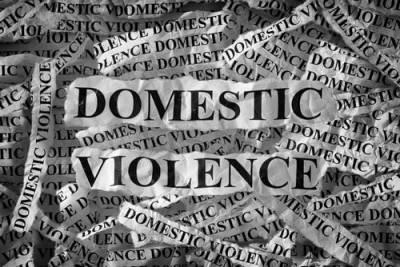Recent Blog Posts
Is Collaborative Law the Same as Mediation?
Posted on July 27, 2023 in Divorce
 Collaborative law and mediation are both alternative dispute resolution (ADR) methods used in the legal field. While they share various similarities, there are critical differences between the two. Today, we will explore the distinctions between collaborative law and mediation, shedding light on their respective processes, goals, and potential benefits. Have a conversation with your divorce attorney to determine if either process may benefit your situation.
Collaborative law and mediation are both alternative dispute resolution (ADR) methods used in the legal field. While they share various similarities, there are critical differences between the two. Today, we will explore the distinctions between collaborative law and mediation, shedding light on their respective processes, goals, and potential benefits. Have a conversation with your divorce attorney to determine if either process may benefit your situation.
Dissecting Collaborative Law
Often used in family law matters, this process involves each party retaining their collaborative law attorney, who assists them in negotiating a mutually acceptable settlement. The attorneys work with the parties to reach a resolution outside of court. Collaborative law involves face-to-face meetings, typically in a neutral setting, where both parties and their attorney engage in open and transparent discussions. The process encourages the exchange of information and focuses on finding creative solutions that meet the needs and interests of all involved.
Continue Reading ››
What to Know About Courtroom Etiquette During Your Illinois Divorce
Posted on June 26, 2023 in Divorce
 Getting a divorce can be a very upsetting process for all involved and can last considerably longer when uncontrollable behaviors and outbursts coincide in court. Divorce proceedings may reflect a bad relationship between divorcing spouses. Still, acting appropriately during your time in court is imperative to ensure you do not make the process any more difficult than it already is. As you look to begin the divorce process, hire an attorney to ensure you can protect your rights and interests.
Getting a divorce can be a very upsetting process for all involved and can last considerably longer when uncontrollable behaviors and outbursts coincide in court. Divorce proceedings may reflect a bad relationship between divorcing spouses. Still, acting appropriately during your time in court is imperative to ensure you do not make the process any more difficult than it already is. As you look to begin the divorce process, hire an attorney to ensure you can protect your rights and interests.
How to Behave in Court 101
If you are going through a divorce in Illinois that requires you to attend a hearing, consider the following courtroom etiquette:
- Dress appropriately – You should dress in a manner that represents respect both to the judge and court proceedings. Your dress code should be business-like and may include a suit for men or a modest outfit and minimal makeup for women.
- Be on time – When attending a scheduled court hearing, ensure you arrive early enough and are prepared with all related documentation. Punctuality portrays proper reverence for the hearing’s worth and the efforts of all present people.
Continue Reading ››
Business Valuation for an Illinois Divorce
Posted on May 20, 2023 in Property Division
 When a business is part of the marital estate in an Illinois divorce, it is essential to value that business as accurately as possible in order to divide the assets fairly between the spouses. However, business valuation can be a tremendously complex process, requiring the input of a team of professionals with knowledge in accounting, finance, and management. Today, we will discuss what you can expect during a business valuation as part of asset division during an Illinois divorce.
When a business is part of the marital estate in an Illinois divorce, it is essential to value that business as accurately as possible in order to divide the assets fairly between the spouses. However, business valuation can be a tremendously complex process, requiring the input of a team of professionals with knowledge in accounting, finance, and management. Today, we will discuss what you can expect during a business valuation as part of asset division during an Illinois divorce.
Necessary Steps During a Business Valuation
The first step in a business valuation is to identify all of the assets and liabilities associated with the business. This includes tangible assets, such as equipment, inventory, and property, as well as intangible assets, such as goodwill, customer relationships, and intellectual property. It may also include liabilities such as outstanding debt and unpaid taxes.
Continue Reading ››
Alternative Dispute Resolution Methods in Illinois Divorce Cases
Posted on April 10, 2023 in Divorce
 Ending a marriage can be a major legal undertaking. Divorcing spouses may need to address the division of marital debts and property, including retirement accounts, investments, real estate, and other property. If they share children, they will need to address the allocation of parental responsibilities and parenting time and create a parenting plan. Child support and spousal support may also be crucial issues in an Illinois divorce.
Ending a marriage can be a major legal undertaking. Divorcing spouses may need to address the division of marital debts and property, including retirement accounts, investments, real estate, and other property. If they share children, they will need to address the allocation of parental responsibilities and parenting time and create a parenting plan. Child support and spousal support may also be crucial issues in an Illinois divorce.
Fortunately, there are several alternative dispute resolution methods available for divorcing spouses in Illinois. These methods may help you reach a resolution without a contentious courtoom trial.
Mediation
Mediation is a type of alternative dispute resolution for legal issues that involves parties coming together to discuss their issues and try to reach a resolution on their own without court input. Discussions will be facilitated by neutral, third-party mediators whose roles are to help parties negotiate a workable settlement.
Continue Reading ››
Knowing the Signs of Domestic Abuse
Posted on March 16, 2023 in Domestic Violence
 Abuse is defined under 750 Illinois Compiled Statute (ILCS) § 60/103(1), as physical abuse, harassment, intimidation of a dependent, interference with personal liberty, or willful deprivation. Although many people think that domestic violence or abuse only involves physical harm, other non-physical harms are also classified as abuse under Illinois law.
Abuse is defined under 750 Illinois Compiled Statute (ILCS) § 60/103(1), as physical abuse, harassment, intimidation of a dependent, interference with personal liberty, or willful deprivation. Although many people think that domestic violence or abuse only involves physical harm, other non-physical harms are also classified as abuse under Illinois law.
Domestic violence is not limited to married couples as it is always possible that an unmarried couple could also be dealing with domestic violence. The Law Offices of Douglas B. Warlick & Associates represents individuals who are both the victims of domestic violence as well as alleged offenders in these cases, and we have more than three decades of experience handling these types of cases.
Common Kinds of Domestic Violence
Some of the most common signs of domestic violence can include:
- Physical Aggression — The Illinois Attorney General specifically states that any person who hits, chokes, kicks, threatens, harasses, or interferes with the personal liberty of another family or household member breaks the state domestic violence law.
Continue Reading ››
Understanding Discovery in a Divorce
Posted on February 06, 2023 in Divorce
 Discovery is the legal process in which both parties to a legal action exchange information about the witnesses and evidence they intend to introduce during a divorce case. This process can lead to the disclosure of incredibly sensitive and important information, such as tax returns and other financial documents, medical records, or child-related information. Discovery can help both sides in a divorce get a clearer view of the other side’s current status and know what assets and debts may be applicable in the case.
Discovery is the legal process in which both parties to a legal action exchange information about the witnesses and evidence they intend to introduce during a divorce case. This process can lead to the disclosure of incredibly sensitive and important information, such as tax returns and other financial documents, medical records, or child-related information. Discovery can help both sides in a divorce get a clearer view of the other side’s current status and know what assets and debts may be applicable in the case.
Types of Discovery Issues
Discovery is typically informal or formal. Informal discovery involves the voluntary release of information by the parties. Formal discovery usually occurs in court and may involve interrogatories, notices to produce documents, depositions, or subpoenas. Interrogatories involve questions one party asks another. The Illinois Supreme Court approved a series of standard interrogatories specifically for divorce cases.
Continue Reading ››
How Are Child Custody Decisions Made in an Illinois Divorce?
Posted on January 13, 2023 in Child Custody and Support
 When two parents are divorcing and have a child or children, it can be incredibly difficult for the spouses to try and determine a workable child custody agreement. Illinois recently changed the language used to describe child custody. “Parental responsibilities” refers to a parent’s ability to make important decisions in a child’s life, such as where they will attend school and what religion they will practice. “Parenting time” relates to the physical care and supervision of a child.
When two parents are divorcing and have a child or children, it can be incredibly difficult for the spouses to try and determine a workable child custody agreement. Illinois recently changed the language used to describe child custody. “Parental responsibilities” refers to a parent’s ability to make important decisions in a child’s life, such as where they will attend school and what religion they will practice. “Parenting time” relates to the physical care and supervision of a child.
If you are getting divorced in Illinois and you share children with your spouse, you will be asked to create a parenting plan that describes the allocation of parenting time and parental responsibilities. If you and your spouse cannot agree on these matters, the court may need to intervene.
Disagreements Regarding the Parenting Plan May Necessitate Court Intervention
Parents divorcing in Illinois use a parenting agreement or parenting plan to describe how the children will be cared for. It can be difficult for many parents to reach a mutually agreeable parenting plan. Sometimes, the court orders the parents to attend mediation, where they work with a neutral third party to develop a parenting plan.
Continue Reading ››
Understanding Parental Relocation in Illinois
Posted on December 21, 2022 in Parental Relocation
 The Illinois Marriage and Dissolution of Marriage Act underwent significant modifications in 2016 that changed the rules regarding parental relocations. Whereas parents were once allowed to move anywhere within Illinois without getting approval from a court or the other parent, parents must now comply with a new set of guidelines.
The Illinois Marriage and Dissolution of Marriage Act underwent significant modifications in 2016 that changed the rules regarding parental relocations. Whereas parents were once allowed to move anywhere within Illinois without getting approval from a court or the other parent, parents must now comply with a new set of guidelines.
The old law was viewed as problematic because a parent living in the Chicago area could move almost 400 miles south to Cairo without notification, while a 30 mile drive to Gary, Indiana would require approval. Under changes to the Illinois Marriage and Dissolution of Marriage Act, moves over a certain distance require approval. The phrase “child removal” has also been replaced with relocation.
Continue Reading ››
What Illinois Spouses Should Know About Legal Separation
Posted on October 19, 2022 in Family Law
 Legal separation is an alternative to divorce that allows spouses to formally separate without terminating the marriage entirely. Spouses who are granted a legal separation are still married, but may have certain orders or agreements in place that are reminiscent of a divorce decree. For example, separated spouses may be entitled to “reasonable support and maintenance” during the separation. Legally separating has certain advantages over divorce. It is easier to undo the effects of a legal separation. Spouses who divorce would be required to remarry should they reconcile and wish to begin living as a married couple again, while those who have legally separated may have significantly easier options should they restart their relationship. If you are considering divorce or legal separation, work with an experienced Illinois lawyer who can guide you through the process.
Legal separation is an alternative to divorce that allows spouses to formally separate without terminating the marriage entirely. Spouses who are granted a legal separation are still married, but may have certain orders or agreements in place that are reminiscent of a divorce decree. For example, separated spouses may be entitled to “reasonable support and maintenance” during the separation. Legally separating has certain advantages over divorce. It is easier to undo the effects of a legal separation. Spouses who divorce would be required to remarry should they reconcile and wish to begin living as a married couple again, while those who have legally separated may have significantly easier options should they restart their relationship. If you are considering divorce or legal separation, work with an experienced Illinois lawyer who can guide you through the process.
Could I Get Support From My Spouse After Separating?
Continue Reading ››
When is Collaborative Divorce or Mediation Not Recommended?
Posted on September 30, 2022 in Divorce
 If you have been browsing divorce topics, you have likely seen countless articles urging you to consider divorce mediation or attorney-facilitated negotiation as a means of resolving your divorce out of court. Collaborative divorce is another common alternative resolution method during divorce. Collaborative divorce requires both parties to actively participate, and to do so in good faith. A mutual willingness to compromise is a necessity. Either spouse, unfortunately, has the power to delay or frustrate the process. If no agreement can be reached after substantial efforts have been made, you will be left with no option but to resort to divorce litigation. In some cases where it is abundantly clear that mediation or negotiations are likely to fail, it may be more prudent to make litigation your plan from the outset. An experienced attorney can assess your situation and help you decide whether yours is a divorce that cannot be settled out of court.
If you have been browsing divorce topics, you have likely seen countless articles urging you to consider divorce mediation or attorney-facilitated negotiation as a means of resolving your divorce out of court. Collaborative divorce is another common alternative resolution method during divorce. Collaborative divorce requires both parties to actively participate, and to do so in good faith. A mutual willingness to compromise is a necessity. Either spouse, unfortunately, has the power to delay or frustrate the process. If no agreement can be reached after substantial efforts have been made, you will be left with no option but to resort to divorce litigation. In some cases where it is abundantly clear that mediation or negotiations are likely to fail, it may be more prudent to make litigation your plan from the outset. An experienced attorney can assess your situation and help you decide whether yours is a divorce that cannot be settled out of court.
Continue Reading ››







 Collaborative law
Collaborative law Getting a
Getting a  When a business is part of the marital estate in an Illinois
When a business is part of the marital estate in an Illinois  Ending a marriage can be a major legal undertaking. Divorcing spouses may need to address the division of marital debts and property, including retirement accounts, investments, real estate, and other property. If they share children, they will need to address the allocation of parental responsibilities and parenting time and create a parenting plan. Child support and spousal support may also be crucial issues in an Illinois divorce.
Ending a marriage can be a major legal undertaking. Divorcing spouses may need to address the division of marital debts and property, including retirement accounts, investments, real estate, and other property. If they share children, they will need to address the allocation of parental responsibilities and parenting time and create a parenting plan. Child support and spousal support may also be crucial issues in an Illinois divorce.  Abuse is defined under 750 Illinois Compiled Statute (ILCS) § 60/103(1), as physical abuse, harassment, intimidation of a dependent, interference with personal liberty, or willful deprivation. Although many people think that domestic violence or abuse only involves physical harm, other non-physical harms are also classified as abuse under Illinois law.
Abuse is defined under 750 Illinois Compiled Statute (ILCS) § 60/103(1), as physical abuse, harassment, intimidation of a dependent, interference with personal liberty, or willful deprivation. Although many people think that domestic violence or abuse only involves physical harm, other non-physical harms are also classified as abuse under Illinois law.  Discovery is the legal process in which both parties to a legal action exchange information about the witnesses and evidence they intend to introduce during a
Discovery is the legal process in which both parties to a legal action exchange information about the witnesses and evidence they intend to introduce during a  When two parents are divorcing and have a child or children, it can be incredibly difficult for the spouses to try and determine a workable child custody agreement. Illinois recently changed the language used to describe child custody. “
When two parents are divorcing and have a child or children, it can be incredibly difficult for the spouses to try and determine a workable child custody agreement. Illinois recently changed the language used to describe child custody. “ The Illinois Marriage and Dissolution of Marriage Act underwent significant modifications in 2016 that changed the rules regarding
The Illinois Marriage and Dissolution of Marriage Act underwent significant modifications in 2016 that changed the rules regarding  Legal separation
Legal separation If you have been browsing divorce topics, you have likely seen countless articles urging you to consider divorce
If you have been browsing divorce topics, you have likely seen countless articles urging you to consider divorce 